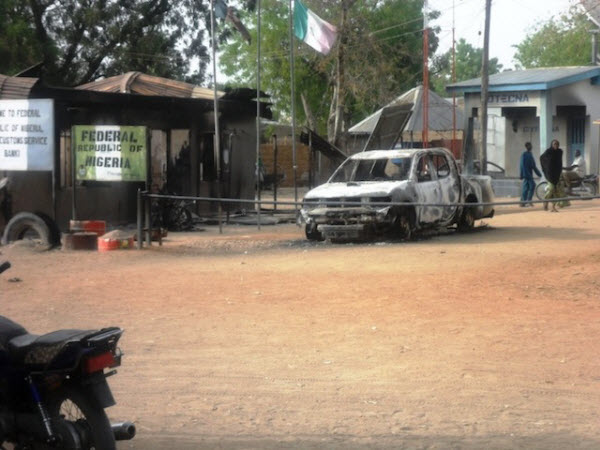There are no products in your shopping cart.
| 0 Items | £0.00 |

 NIGERIA'S decision to open her borders top neighbouring countries will be predicated on all imports having at least 30% local input in line with the Economic Community for West African States (Ecowas) free trade protocol.
NIGERIA'S decision to open her borders top neighbouring countries will be predicated on all imports having at least 30% local input in line with the Economic Community for West African States (Ecowas) free trade protocol.
Last week, President Muhammadu Buhari extended Nigeria's ongoing border closure programme until January 31 as part of the government's plans to limit the influx of cheap imports through neighbouring ports like Cotonou in the Republic of Benin. Of late, Nigeria has sought to limit the volume of her imports by stepping up the production of goods such as cement and rice in a bid to save foreign exchange.
However, the programme is being thwarted by a loophole in the Ecowas protocol that allows for the free movement of goods and services across the sub-region. Rice and cement exporters like China, Thailand, Pakistan, etc have been shipping goods to Cotonou ports, from where they are being shipped into Nigeria duty-free.
With local producers unable to compete with these cheap imports, Nigeria decided to shut her borders, which has led to economic hardship in neighbouring nations. Foreign minister Geoffrey Onyeama, has confirmed that the border closure will be up for review on January 31 next year but they will only be open to goods that have at least 30% local content input.
Speaking during a meeting of the Inter-Ministerial Committee on the Temporary Partial Closure of Land Borders earlier today, Mr Onyeama stated that Ecowas countries must respect rules of origin. He added that Nigeria will no longer tolerate repackaging of imported goods and stipulated that that goods imported for the Nigerian market must be escorted directly from the port of member states directly to the borders.
Ecowas member states have been pressing Nigeria to re-open her borders, saying that the closure is costing them dear as perishable goods are rotting away at their ports. However, Nigeria is wary of the fact that most of these goods, particularly rice and cement are produced in Asian countries like China, Thailand, Pakistan, India and Sri Lanka, so are not covered by the Ecowas protocol.